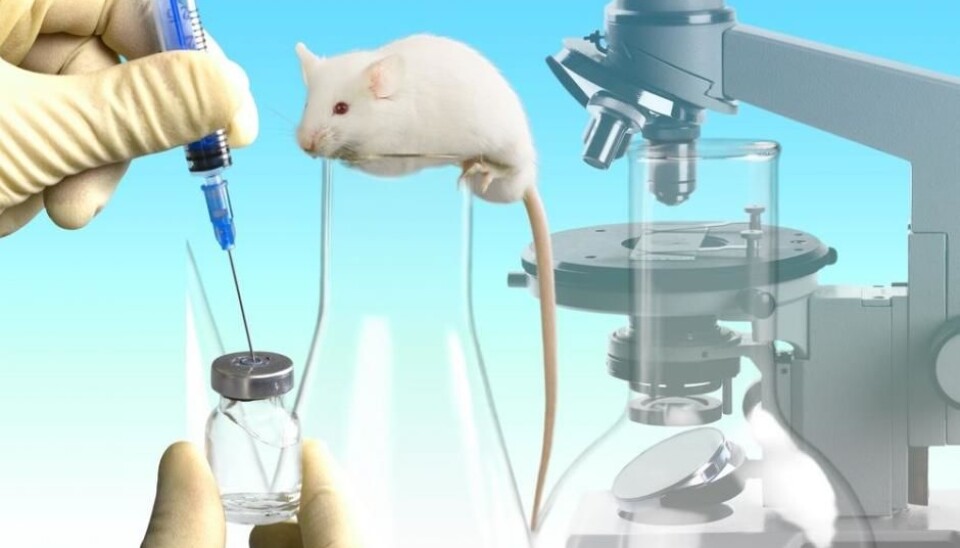
New technique cures deadly bladder cancer in mice
Scientists have developed an artificial malaria protein that can halt the growth of bladder cancer in mice. They will now test it on other forms of cancer before starting human trials.
In 2015, scientists discovered that a malaria protein could bind itself to lung, breast, and prostate cancers in mice.
The discovery signalled the possibility of a new class of cancer therapeutics that use these proteins to target and deliver anti-cancer drugs directly into the tumours.
The same team of scientists have now taken the next step to see whether the new technique really could be an effective cancer treatment. In a new study published in the scientific journal European Urology, they report that the treatment was successful in treating mice with chemotherapy-resistant bladder cancer—a deadly form of bladder cancer, which has few treatment options.
Read More: Malaria protein targets and kills cancer cells
Possible candidate for treating deadly bladder cancer
The new technique could save patients’ lives by deploying an artificial malaria protein to target treatment directly at the cancer cells.
“The treatment can potentially help the sub-group of patients that don’t respond to standard treatment with chemotherapy," says senior author Dr. Mads Daugaard, head of the Molecular Pathology and Cell Imaging Laboratory and senior scientist at the Vancouver Prostate Centre, University of British Columbia in Canada.
"Cisplatin-based chemotherapy is the mainstay of treatment, but responses are unfortunately rarely sustainable. The only available second-line therapy, recently approved in the US is immunotherapy, to which only a minority of patients respond. As such, there’s a huge need for new second line treatment options and now we have a strong candidate,” he says.
Read More: How basic research helps fine-tune cancer treatments
Early treatment will be a “big advantage”
Head of research in bladder cancer at the Department of Molecular Medicine at Aarhus University, Professor Lars Dyrskjøt Andersen, has read the article with interest.
The results are promising, he says, especially if treatments can be targeted in the early stages of the disease. Andersen was not involved in the study.
“If we can, for example, flush the bladder with a substance that binds to the malaria proteins at an early stage [of the cancer], then we can save a lot of resources on endoscopic examinations and save patients having to undergo treatments with lots of side effects,” says Andersen.
“If we can get better treatments earlier on, using substances that don’t have the same side effects of current treatments, then it will be a big advantage for patients and the healthcare system,” he says.
Read more: Chemists take top prize in Danish Research of the Year Award
Obstacles before people can be treated
There is still some way to go before the treatment can be rolled out to patients.
First, the study has so far only been conducted on mice. It is never guaranteed that the same effects will be observed in human trials. Second, they have tested the treatment on one type of bladder tumour, but further tests are needed before the scientists can say whether it will be just as effective on bladder tumours in general or on all cells within a single tumour.
Finally, a treatment that attacks one type of cell makes it easier for other types of cells to grow. Perhaps the same will happen with this treatment?
Read More: Malaria vaccine halts spread of cancer
Big potential for effective treatment
In an earlier study [INSERT LINK], scientists demonstrated that the artificially produced malaria protein binds itself to a specific sugar molecule on cancer cells, which is normally only found in the placenta
The scientists behind the new study, which includes scientists from the University of Copenhagen, Denmark, have now demonstrated that the sugar molecule is especially prevalent on cancer cells in patients who have failed standard chemotherapy. That increases the likelihood of being able to deliver a toxin via the malaria protein to the most lethal form of bladder cancer.
“It’s very positive that so many cancer cells contain sugar molecules as you see in this study. We are about to approve immunotherapy in the USA and hopefully also here in Denmark soon. We’ve seen big effects here, also with second line treatments after chemotherapy, and I can imagine that in the future we’ll be able to combine chemotherapy and immunotherapy with these specific drugs. So there’s potential for an effective treatment,” says Andersen.
Read More: Cancer cells grow by exploiting their neighbours
Next step: lethal childhood cancers
The scientists are already looking ahead to the next stage of research.
At the moment, scientists are about to study whether they can also halt deadly childhood cancers, prostate cancer, and a particular kind of high-risk lung cancer. Scientists are also working on a side project to combine the artificial malaria protein with immunotherapy.
They plan to start testing the treatments in human trials soon.
“We haven’t yet committed ourselves to which type of cancer we will start with (the phase one human trials), but chemotherapy-resistant bladder cancer is definitely an interesting candidate,” says Daugaard.
---------------
Read more in the Danish version of this article at Videnskab.dk
Translated by: Catherine Jex
Scientific links
- An Oncofetal Glycosaminoglycan Modification Provides Therapeutic Access to Cisplatin-resistant Bladder Cancer; European Urology
- Targeting Human Cancer by a Glycosaminoglycan Binding Malaria Protein; Cancer Cell; DOI: http://dx.doi.org/10.1016/j.ccell.2015.09.00





